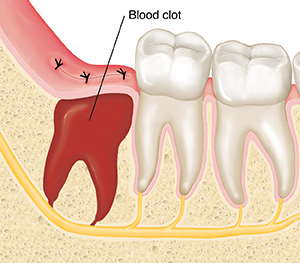Exploring Various Sedation Options for a Comfy Wisdom Teeth Extraction Experience
The use of sedation throughout such treatments has come to be progressively usual to relieve anxiousness and pain. With a range of sedation options available, from neighborhood anesthesia to basic anesthetic, each approach offers varying degrees of leisure and discomfort control.
Local Anesthetic
Local anesthesia is a frequently utilized approach for numbing certain locations of the mouth throughout wisdom teeth removal procedures. By providing a local anesthetic, such as lidocaine, a dental expert can guarantee that the client remains pain-free and comfortable throughout the removal procedure.
Among the key benefits of local anesthetic is its targeted numbing result, which indicates that only the details area being dealt with is impacted. This localized strategy decreases the risk of systemic side impacts and permits a quicker recovery post-procedure. In addition, regional anesthetic is taken into consideration to be a secure and regular technique in dentistry, with minimal risks involved when provided by a skilled specialist.
Nitrous Oxide
Laughing gas, frequently called laughing gas, is a form of sedation typically utilized in dentistry to assist individuals relax during oral procedures. It is a risk-free and reliable method that includes inhaling a mix of nitrous oxide and oxygen through a mask put over the nose. Among the essential advantages of laughing gas is its quick onset of activity, normally within minutes, providing practically prompt relaxation for the person. This sedation option allows the person to remain aware and responsive throughout the procedure while feeling comfortable and comfortable.
In addition, laughing gas is recognized for its fast recuperation time. As soon as the mask is eliminated, the results of the gas disappear quickly, permitting people to resume their regular tasks without remaining sedative effects. This makes laughing gas a convenient choice for those who need to drive themselves home after the oral appointment. Nitrous oxide is ideal for people of all ages, making it a flexible sedation alternative for wisdom teeth extractions and various other oral procedures.
Dental Sedation
Oral sedation, a pharmacological technique utilized in dentistry, involves the management of sedative medicines by mouth to generate a loosened up state throughout dental procedures. The medicines prescribed for dental sedation belong to a class of medications called benzodiazepines, which have sedative, anxiolytic, and amnesic homes.
Unlike intravenous sedation, oral sedation does not need shots or needles, making it a much more comfy option for individuals with a worry of needles. Additionally, oral sedation is taken into consideration effective and risk-free when carried out by trained dental specialists.
IV Sedation
Administered intravenously by qualified medical experts, IV sedation is an effective technique used to cause a regulated state of deep leisure and unconsciousness throughout oral treatments. Unlike oral sedation, which can be unforeseeable in its impacts, IV sedation enables precise control over the level of sedation, making it a suitable selection for complex treatments like knowledge teeth extractions.
Throughout IV sedation, a sedative medicine is supplied straight into the bloodstream through a vein, allowing it to work quickly and effectively. This technique makes sure that the individual remains unaware and comfortable of the procedure while still keeping crucial features such as breathing and heart rate.
One of the main advantages of IV sedation click here for more is its capacity to supply a deeper degree of sedation compared to other methods, making it especially appropriate for clients with high levels of anxiety or those undergoing substantial oral job anonymous (wisdom teeth removal aspendale). In addition, the results of IV sedation commonly disappear slowly after the procedure, decreasing the chance of grogginess or sticking around negative effects. Generally, IV sedation offers a safe and efficient option for making certain a comfortable and stress-free experience during knowledge teeth extraction

General Anesthesia
Having discussed the benefits of IV sedation for wisdom teeth removal, the usage of basic anesthesia supplies an alternate choice for individuals needing a deeper degree of unfamiliarity during dental treatments. General anesthesia generates a controlled state of unconsciousness, making certain the person really feels no pain or discomfort during the removal process. This approach is specifically beneficial for individuals with severe dental anxiousness, complicated medical requirements, or those undertaking several extractions simultaneously.
General anesthesia is provided by a trained anesthesiologist who very closely monitors the client's vital signs throughout the treatment. It involves the usage of intravenous drugs or breathed in gases to generate a state of unconsciousness. While under general anesthetic, the client will certainly not understand the surgery, experience any pain, or have any recollection of the procedure later.
Although basic anesthesia is risk-free when provided by qualified specialists, it brings a slightly higher danger compared to various other sedation choices - wisdom teeth removal aspendale. Clients considering general anesthetic for knowledge teeth removal need to discuss the possible risks and benefits with their dental practitioner or dental surgeon to make a notified decision based upon their private needs and case history

Conclusion
In conclusion, various sedation alternatives are readily available to guarantee a comfy knowledge teeth extraction experience. Dental sedation and IV sedation deal much deeper degrees of leisure, depending on the look at this website individual's needs.
Nitrous oxide is ideal for clients of all ages, making it a functional sedation choice for wisdom teeth extractions and other oral procedures.
